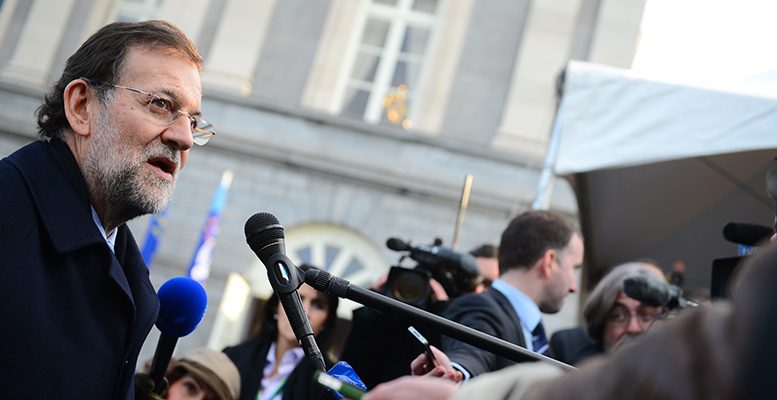Spaniards will go out and vote again on June 26, six months after the ordinary elections which took place when Rajoy’s government ended its mandate, having enjoyed a four-year majority. The result of the December 20 polls was an impossible political chessboard, with no group capable of forming a government. Rajoy, pragmatic and a realist, did not even attempt it; and while PSOE leader Sanchez showed willing, he lacked the capabilities to put together a coalition government.
A grand coalition between the two traditional parties is, for now, an unnacceptable option for the socialists. And the political composition on the left lacks sufficient motivation to encourage an association, whatever this maybe. So the Spaniards will go to the polls again, enabling another role of the dice which will result in a new, unknown composition.
Despite the failure to form a government after the December elections, the people involved haven’t changed. The only novelty is that Izquierda Unida (an alliance between communists, ecologists and others) has teamed up with Podemos under the name “Unidos Podemos”. Together they hope to obtain more votes and seats than the socialists to force them to join a coalition as travelling companions, or “useless fools” in the opinion of former socialist leaders.
According to all the opinion polls, the PP, with Rajoy at the helm, will once again emerge as the leading political force, but without enough seats to form a government. But whatever possible alliance is headed up by Rajoy runs the risk of floundering unless the PP changes its candidate. Something similar happened in Catalonia last January, when President Artur Mas stepped down at the very last minute as head of the Junts pel Si alliance.
Rajoy has few possibilities of forming and leading a coalition government. Neither Ciudadanos (a possible partner although one which is perhaps not quite right for the PP) nor the socialists (the right partner) are prepared to participate in a Rajoy-lead government. But they could accept a government led by another candidate who has not been tainted by the corruption cases which have led to PP leaders being investigated.
Only a scenario in which the PP wins considerably more seats than the 123 obtained on December 20 (there are 350 in the House) would support Rajoy’s aspirations; with the same number or fewer seats, he would have very few options left to govern. Even though no-one from his party has dared, up to now, to formally question his leadership. And if it was the left which formed the government, it would also not be possible for Rajoy to remain as leader of the PP in opposition.
The likelihood of Rajoy continuing is slight, although within the PP there don’t seem to be any rumblings with regard to organising a replacement. The accumulated experience argument, used by Rajoy to win votes, does not seem strong enough to secure his re-election. If there is a government at the end of July, everything indicates that Rajoy will not be its leader.





